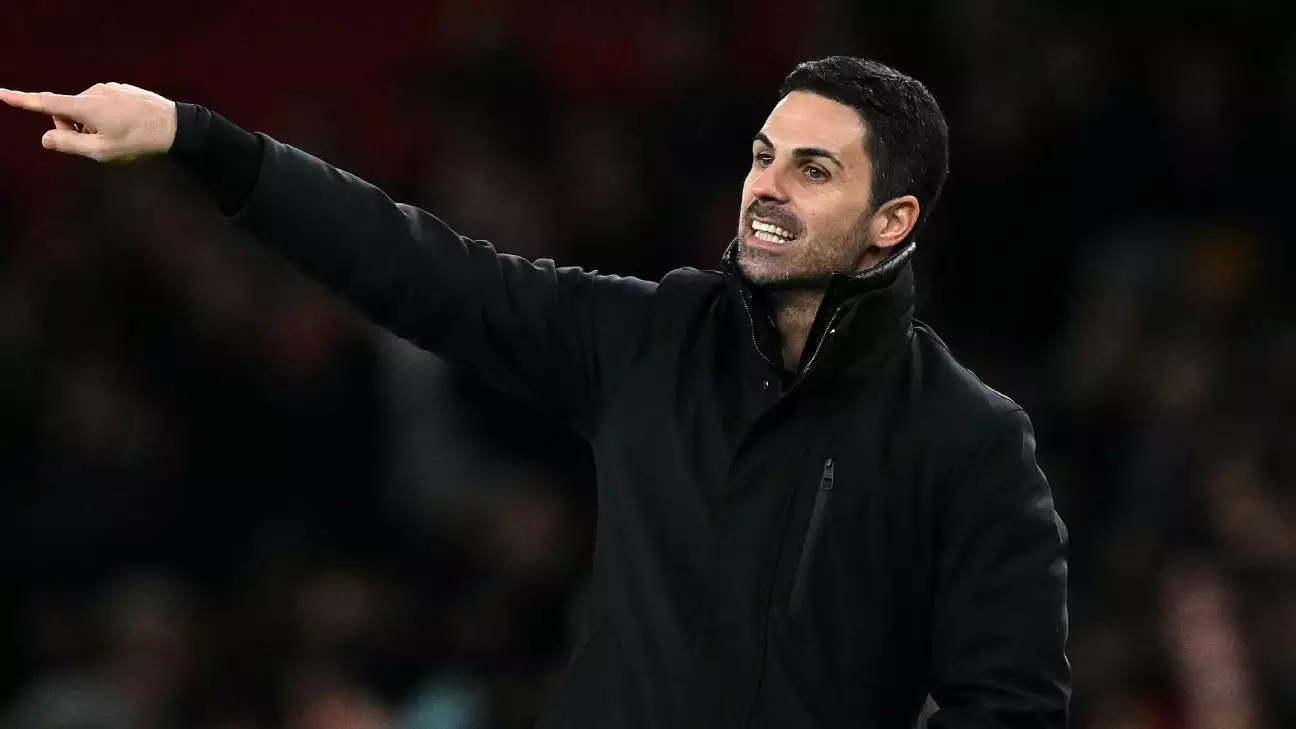In the recent Carabao Cup semifinal first leg against Newcastle United, Arsenal’s 2-0 defeat has raised several questions about both performance and preparation. The match showcased a failure to capitalize on numerous opportunities, while manager Mikel Arteta hinted at an unusual yet significant factor influencing the game: the ball used in the competition. While this explanation may seem trivial to some, there are critical layers beneath this narrative that warrant a deeper exploration.
Arteta’s comments on the Carabao Cup ball highlight a fascinating aspect of sports: the importance of equipment in performance. The Gunners recorded an expected goals (xG) statistic of 3.12, indicating they created chances that generally would lead to scoring. However, the inability to translate these opportunities into goals signals a deeper misalignment with the ball’s specifications. Arteta pointed out that this particular ball, supplied by Puma, behaved differently in play compared to their regular training ball from Nike. The variations in flight and grip can significantly disrupt a player’s instinctive actions, leading to mishaps in finishing—a key component in high-stakes matches.
When players are used to a specific type of ball, any deviation can lead to a psychological barrier, where hesitancy replaces confidence. Arteta’s acknowledgment of the technical challenges posed by the Carabao Cup ball reveals a broader truth about professional sports: even small changes can have profound effects.
While the ball presented challenges, it was not the sole factor contributing to Arsenal’s poor performance. The team failed to convert their chances, reflecting a recurring theme of missed opportunities in high-pressure situations. Arteta emphasized the need for improvement, indicating that the coaching staff must instill confidence and facilitate better decision-making in front of goal. Despite the blame placed on the ball’s characteristics, the players must take accountability for not executing fundamental skills they have practiced extensively.
Moreover, the psychological ramifications of failing to score can create a cycle of anxiety and self-doubt. As Arteta navigates this delicate dynamic, he must foster an environment that encourages risk-taking without fear of failure. The Gunners must learn to adapt not only to the physical aspects of the game but also to the mental challenges that arise when faced with adversity.
Looking Ahead: Strategies for Redemption
As Arsenal prepares for the return leg on February 5, it is imperative that they regroup and reassess their strategy. Arteta, with his experience as part of Pep Guardiola’s coaching team at Manchester City, understands the pressures of knockout competitions. He will undoubtedly focus on building resilience within his squad, emphasizing the importance of quick adaptation to not just the equipment but also to the evolving dynamics of the match.
Moving forward, Arsenal must blend tactical lessons with psychological preparation to ensure they do not fall victim to the same pitfalls. By addressing these intertwined challenges, they can approach the upcoming match with renewed confidence and a clearer strategy, ready to turn the tide against Newcastle United.
While the unique characteristics of the Carabao Cup ball presented an undeniable challenge for Arsenal, the root causes of their defeat lie deeper. Addressing both the physical and psychological dimensions of their performance is crucial for the team’s success as they prepare to overcome the setback and vie for a spot in the final. Ultimately, effective adaptation and resilience will define their journey moving forward.


Leave a Reply